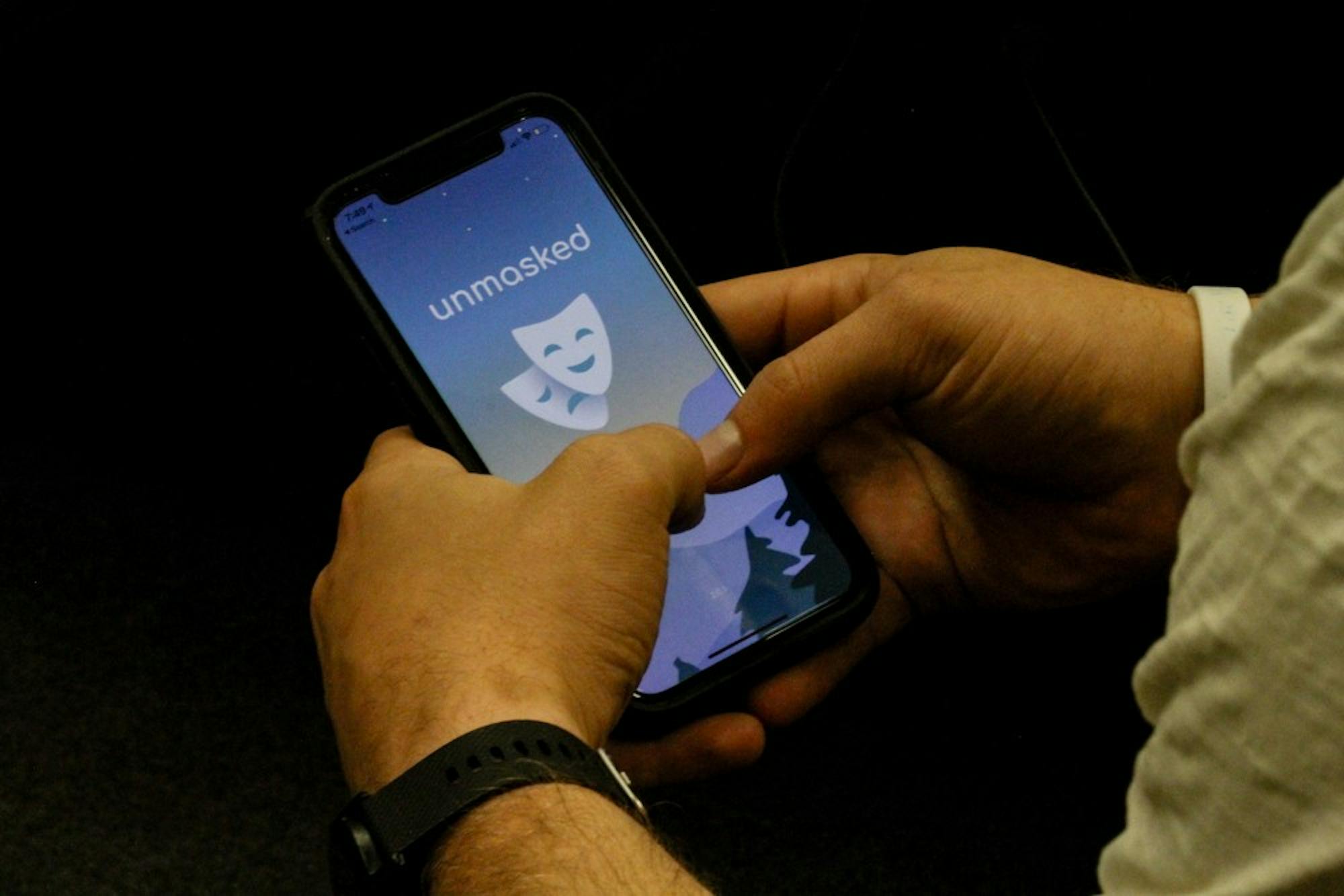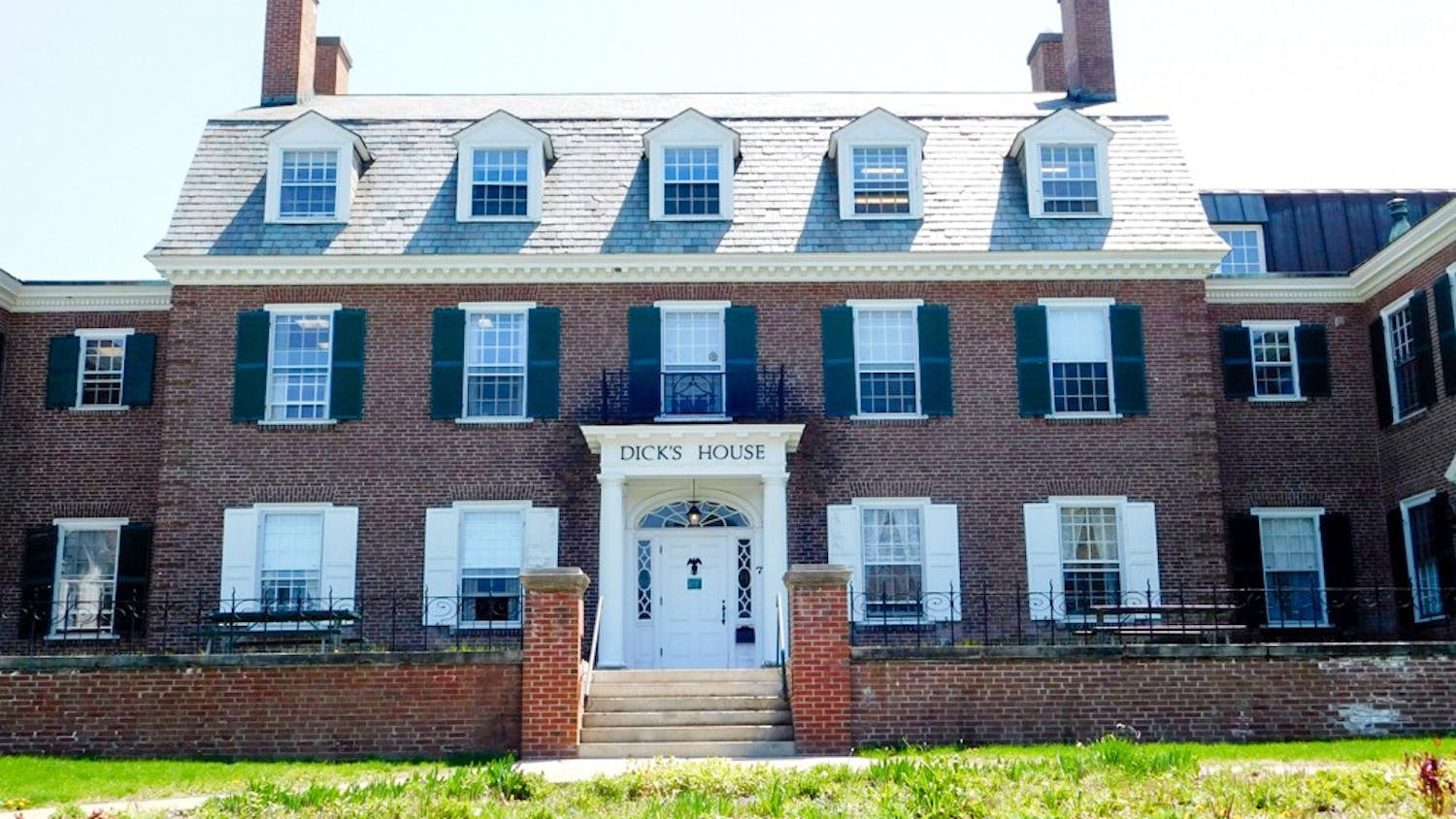Unmasked, an anonymous social media mobile application focused on mental health, launched on iOS on Jan. 13.
According to Unmasked founder Sanat Mohapatra ’20, he first had the idea for the app during his freshman spring, when many community members were using Yik Yak — a now defunct app on which users could post to anonymous message boards viewable by anyone within a five-mile radius. Mohapatra recalled that when Yik Yak was popular on campus, some students would anonymously post about their mental health struggles at Dartmouth. After observing the effects of Yik Yak’s unmoderated nature, Mohapatra wanted to create a safer, more focused platform where peer support could take place.
“Yik Yak wasn’t moderated, so people would respond very violently and negatively, and there were a lot of trolls,” Mohapatra said. “I spent a lot of my freshman spring on Yik Yak trying to help people through their issues, so that made me very aware that Yik Yak is not a good forum for mental health.”
In aiming to fix the problems associated with Yik Yak, Mohapatra said that he and the team of developers have implemented measures to ensure that Unmasked remains a safe, supportive environment, free of trolls and bullying.
“Obviously, it allows students to be more honest, but because of trolls or the potential of people to just post without consequence, we developed a whole other side of the app that’s for moderators,” said Jenna Salvay ’20, a member of the Unmasked leadership team.
According to Salvay, all of the moderators underwent student support training in collaboration with Dick’s House and the Student Wellness Center. Furthermore, moderators are able to identify and communicate with trolls, as well as remove harmful content from the app.
Mohapatra said that the app features “community flagging,” which allows a post to be taken down if three or more users flag it. He added that because users sign in with their Dartmouth NetIDs, if a user is banned for being a “troll,” that same user cannot make another account to continue trolling since each student has only one NetID.
“We also think that having the specific focus [of] being a mental health platform kind of dissuades trolls, whereas like if it’s just a general message board you can just say whatever, and it’s funny to troll,” Mohapatra said. “But with the community so far, now that the app has been out, has been very focused on being supportive.”
Mohapatra said that within the first 24 hours of the Unmasked’s launch, 246 users signed up, and the app received 64 posts and 248 comments. Mohapatra added that in those first 24 hours, users discussed issues of self-harm, rape, severe anxiety, OCD and hypochondria, among others.
Because Unmasked is an independent corporation, it cannot officially refer students to College resources such as Dick’s House counseling or the Student Wellness Center due to liability concerns, Mohapatra said. However, the app does include links to dozens of anonymous public hotlines, and students can refer one another to Dartmouth resources. Additionally, Dick’s House director Heather Earle and Student Wellness Center director Caitlin Barthelmes have been advisers on the project since it began.
The app has undergone several phases of development. Mohapatra first started developing the app when he applied to DALI Lab as an independent partner his sophomore spring. From there, he worked with a DALI Lab team, then a team of independent developers in India, and — for the final stage of the app — a small group of volunteer student developers at Dartmouth who had an interest in the project. According to Mohapatra, the app also underwent beta testing, which helped developers realize the need for moderators.
According to one of the developers, Soo Hwan Park ’19, the Android version of the app is currently under development, but the developer team does not currently have a timeline on when it will go live.
“We just launched a few days ago, and we’re starting with the Dartmouth campus, but we hope to go beyond Hanover and New Hampshire — and hopefully this can be like the next big thing that can help with hidden mental health issues everywhere,” Park said.
Salvay said she feels that Unmasked fills a gap in Dartmouth’s existing mental health resources and is excited to see how the app can help students.
“When I was a sophomore in the fall, I was going through a tough time, and the only resource I wanted was to be able to talk to other students without feeling like I had to make an appointment at Dick’s House or talk to an adult who might not necessarily know what I’m going through,” Salvay said.
Correction appended (Jan. 17, 2020): This article originally stated the name of the app as "Dartmouth Unmasked." The name of the app is "Unmasked." The article has been updated to reflect this correction.




